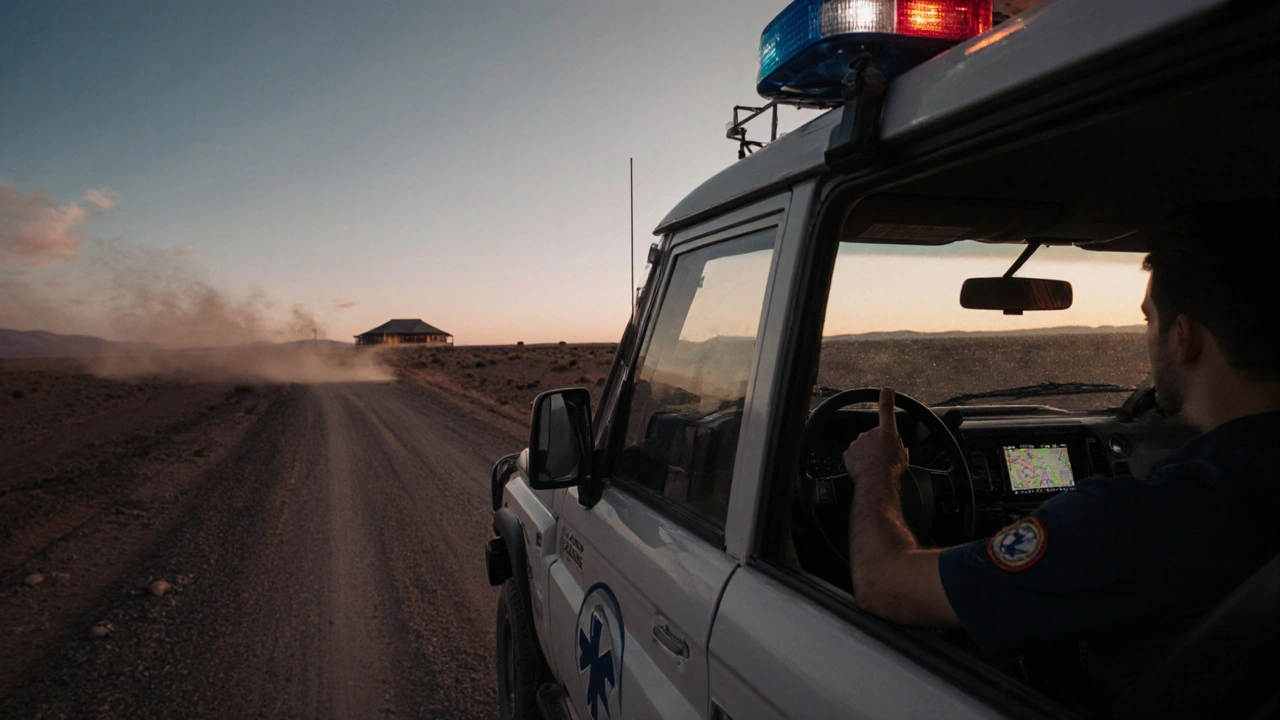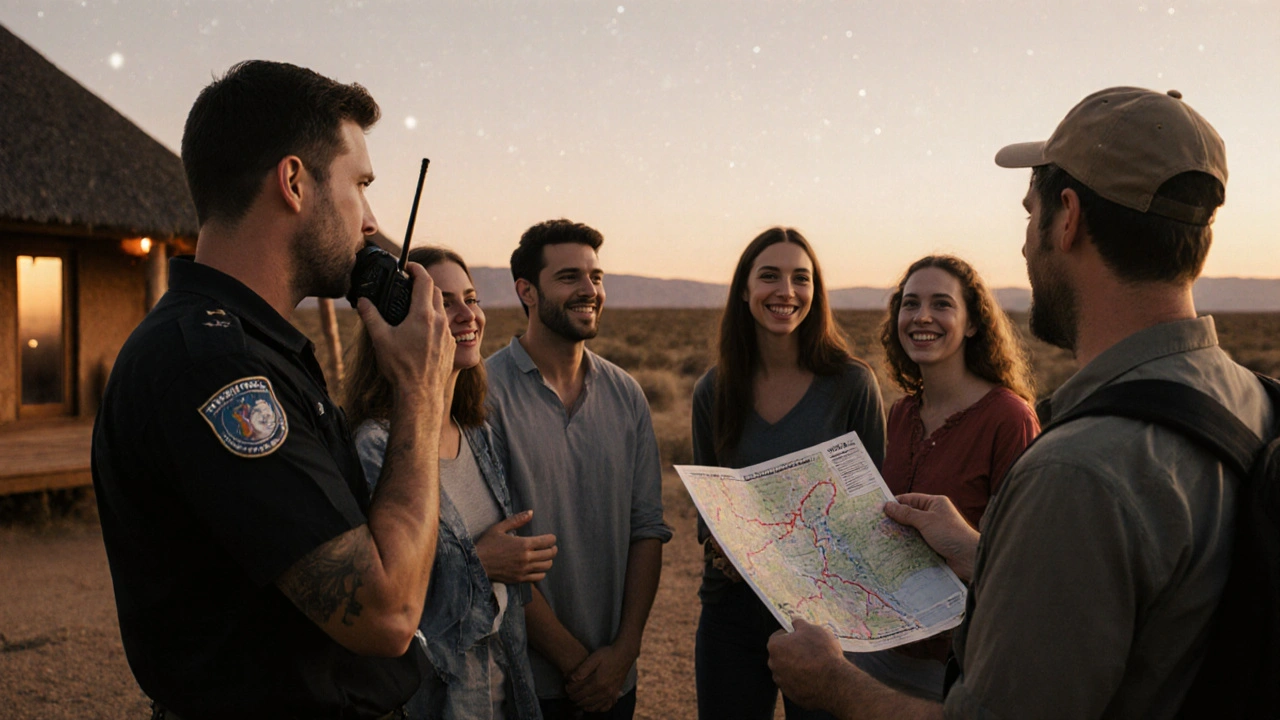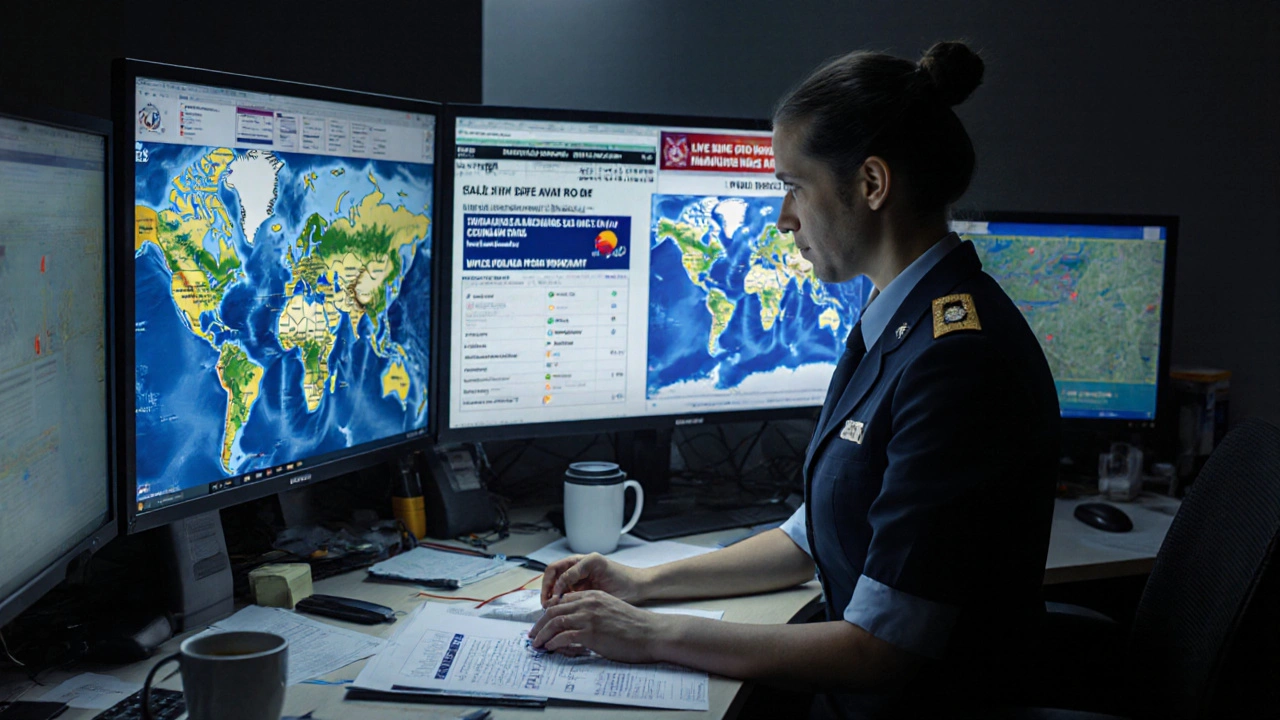Before a tour escort even steps out the door with a group, a silent but critical process has already happened behind the scenes. It’s not about booking hotels or planning sightseeing routes. It’s about answering one question: Is it safe to go? Tour escort services don’t just show up and lead. They assess, anticipate, and prepare. And if they skip this step, they’re not just cutting corners-they’re putting people at risk.
Why Risk Assessments Are Non-Negotiable
Imagine a group of six tourists heading to a remote archaeological site in southern Jordan. The tour operator says it’s ‘off the beaten path’ and ‘a hidden gem.’ But what they don’t say is that the road to the site hasn’t been maintained since 2021. Flash floods have washed out bridges. Local authorities have issued warnings. The escort service didn’t check. That’s not an outlier. In 2024, over 37% of travel incidents involving escorted groups in high-risk regions were linked to inadequate pre-departure planning, according to the International Travel Safety Network. These aren’t just delays or missed meals. These are medical emergencies, stranded travelers, and in rare but real cases, kidnappings or violent confrontations. Tour escort services that take safety seriously run formal risk assessments before every trip. Not once a year. Not for ‘high-risk’ destinations only. Every single departure. Because risk changes daily.What Goes Into a Pre-Departure Risk Assessment
A proper risk assessment isn’t a checklist you print from a website. It’s a live, multi-layered evaluation. Here’s what it actually looks like:- Local Security Updates: Are there protests scheduled near the planned itinerary? Has there been a spike in petty theft at the hotel zone? Is the airport still operating normally? Escort services monitor government advisories from at least three sources: the U.S. State Department, the UK Foreign Office, and local police bulletins.
- Transportation Safety: Who’s driving the bus? Are the vehicles inspected? Are drivers licensed and rested? In some countries, unregulated minivans are common. A good escort service verifies driver records and vehicle maintenance logs before the group boards.
- Health Risks: Is there an outbreak of dengue fever in the region? Are local clinics equipped to handle allergic reactions or heatstroke? Are vaccinations required or recommended? The escort team checks CDC and WHO alerts and confirms that first aid kits are stocked with region-specific meds.
- Cultural and Legal Triggers: Are there dress codes that could cause offense? Is photography restricted near military sites? Are certain gestures considered insulting? One escort service in Dubai had to reroute a group after realizing they’d booked a desert tour that passed a restricted radar station-something the brochure didn’t mention.
- Communication and Emergency Plans: Can the escort reach local emergency services in a crisis? Do they have backup translators? Is there a local contact at every hotel? Are group members registered with their embassy? These aren’t ‘nice to haves.’ They’re survival tools.
How Risk Assessments Change the Itinerary
A good risk assessment doesn’t just flag danger-it changes the plan. That’s the whole point. In March 2025, a tour escort company based in Dubai was scheduled to lead a group through the Atacama Desert in Chile. Two days before departure, local news reported a sudden increase in unlicensed tour operators offering unsafe off-road excursions. The escort team didn’t cancel. They upgraded. They switched from a standard 4x4 to a vehicle with satellite communication, added a certified paramedic to the team, and replaced the planned overnight camp with a licensed eco-lodge with secure facilities. The group didn’t know the change was due to a risk assessment. They just thought, ‘Wow, this trip feels more secure.’ That’s the goal. Not to scare people. To give them peace of mind.
What Happens When Assessments Are Skipped
There’s a difference between a company that does risk assessments and one that just says they do. In 2023, a group of Canadian tourists in Egypt were left stranded after their escort service failed to check the status of a ferry crossing. The ferry had been suspended due to mechanical issues. No one told the group. No backup plan existed. They spent 14 hours waiting in 40°C heat with no water or shade. One person suffered heat exhaustion. The company’s response? ‘We didn’t know.’ That’s not ignorance. That’s negligence. And it’s more common than you think. Smaller operators often rely on outdated Google searches or brochures from two years ago. They assume ‘it’s been fine before.’ But safety isn’t a trend. It’s a condition that shifts with weather, politics, disease, and infrastructure.How to Tell If a Tour Escort Service Takes Safety Seriously
You don’t have to be an expert to spot the difference. Here’s what to ask before booking:- ‘Can you show me your pre-departure safety checklist for this trip?’ If they hesitate or say ‘We just follow the itinerary,’ walk away.
- ‘Who do you contact for real-time updates in the destination country?’ Look for names: local police, embassy contacts, medical partners. Generic answers like ‘we have local partners’ aren’t enough.
- ‘What happened on your last trip to this location?’ A good service will share a real example-maybe a route change, a canceled activity, or an emergency drill they ran. If they say ‘Nothing ever goes wrong,’ that’s a red flag.
- ‘Do your guides carry emergency medical kits and communication devices?’ If they say ‘We have a phone,’ that’s not enough. Ask about satellite phones, GPS trackers, and backup power.

Technology Is Helping-But It’s Not a Replacement
Some escort services now use apps that pull live data from government advisories, traffic cams, and weather satellites. Others use AI tools to scan news feeds for mentions of unrest near planned stops. But tech doesn’t replace judgment. An app can tell you there’s a protest near the museum. It can’t tell you if the protest is peaceful or if the group should detour through a side alley where women are being targeted. That’s why the best escort services combine technology with human experience. A guide who’s been in Cairo for 12 years knows the difference between a noisy crowd and a dangerous mob. No algorithm can replicate that.The Real Cost of Cutting Corners
The cheapest tour isn’t the one with the lowest price. It’s the one that ends with a hospital bill, a canceled vacation, or worse. Tour escort services that skip risk assessments aren’t saving money. They’re gambling-with people’s lives. And in a world where travelers expect transparency, that gamble is losing. The companies that thrive aren’t the ones with the flashiest websites. They’re the ones who send a PDF before you book: ‘Here’s what we checked. Here’s what we changed. Here’s how we’ll keep you safe.’ That’s not marketing. That’s responsibility.What You Can Do as a Traveler
You don’t have to do the risk assessment yourself. But you can ask the right questions. You can choose a service that treats safety like a core value-not an afterthought. If a tour escort service won’t talk openly about their safety protocols, that’s your answer. Don’t wait until you’re on a bus in a foreign country to realize you made the wrong choice. Safety isn’t glamorous. But it’s the only thing that lets you enjoy the journey.Do all tour escort services do risk assessments before departures?
No. While reputable services conduct formal risk assessments before every trip, many smaller or budget operators skip this step to save time or money. They rely on outdated information, general advice, or assumptions. Always ask for details about their safety process-any service that avoids the question shouldn’t be trusted.
What’s the difference between a risk assessment and a travel advisory?
Travel advisories are broad, government-issued warnings about countries or regions. A risk assessment is specific: it takes that advisory and applies it to your exact itinerary. For example, a country might have a Level 2 advisory, but if your group isn’t going near the affected zone, the real risk is low. A good escort service customizes the assessment to your route, timing, and group needs-not just the headline.
How often do escort services update their risk assessments?
They should update them every 24 to 48 hours before departure. Conditions change fast-protests, weather, transport strikes, or health outbreaks can emerge overnight. A professional service monitors alerts daily and adjusts plans accordingly. If they only check once a week, they’re not staying current.
Can I request a copy of the risk assessment before booking?
Yes, and you should. Reputable services will provide a summary of their assessment-what they checked, what they changed, and why. If they refuse or say it’s ‘confidential,’ that’s a red flag. Transparency about safety is a sign of professionalism, not a liability.
What should I do if I feel unsafe during the tour?
Speak up immediately. A good escort service trains their guides to respond to concerns without judgment. If your guide dismisses your worries or says ‘it’s fine,’ that’s a warning sign. Document what happened, ask for a supervisor, and contact your embassy if needed. Your safety overrides any schedule.
